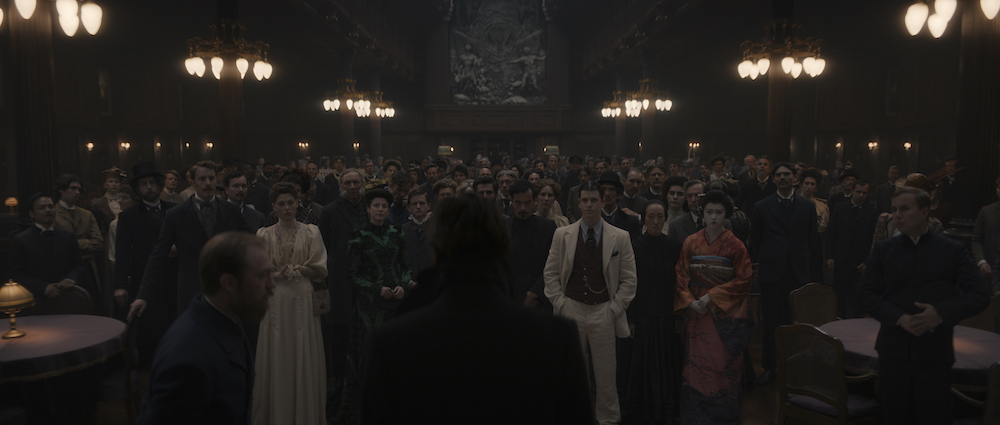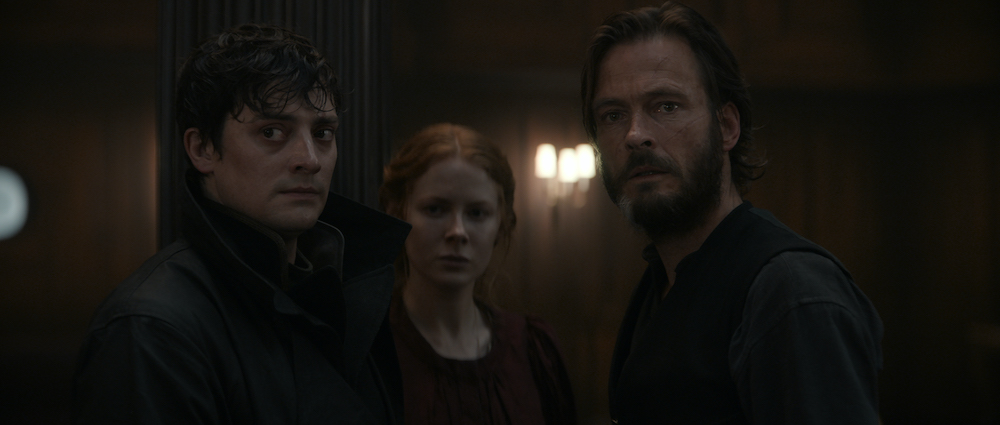‘1899‘ is a sci-fi mystery TV series from Netflix that follows a passenger ship aboard which several migrants are traveling from London to New York. When Captain Eyk receives signals from an unknown ship, he wonders if it’s from Prometheus, a ship that’s been missing for four months. Since Prometheus carried over 1400 passengers, he decides to take a detour to find out if this unknown vessel is Prometheus and if there are any survivors on it.
Few of the passengers play a pivotal role in the overall narrative. They are migrants who harbor dark secrets and want to escape their past. However, when their ship reaches the location, Eyk discovers that the vessel is indeed Prometheus. Soon, the passengers of Kerberos begin to experience unexplainable events, and chaos ensues. ‘1899’ is created by Baran bo Odar and Jantje Friese, known for the riveting time-travel show, ‘Dark.’ Although the premise of ‘1899’ is entirely different from ‘Dark,’ the former’s tonality and sci-fi elements remind us of the latter. It makes us wonder if ‘1899’ is a sequel to ‘Dark’ and if the two stories are related. Well, let us find out.
Debunking the Rumors: How 1899 and Dark Are Not Related
‘1899’ is not a sequel to ‘Dark,’ and the concepts of the two shows are entirely different. While ‘Dark’ is an intricately crafted time-travel series, ‘1899’ revolves around the themes of mental health, dreams, and simulations. In an interview with Entertainment Weekly, the creators said that ‘1899’ doesn’t involve time travel at all. Besides this, ‘Dark‘ takes place over various eras from 1888 to 2053. However, ‘1899’ is set in the titular year.

In addition, the time-travel series is a slow burn wherein the twists and revelations unravel at a steady pace. However, the period show is packed with action, and the revelations are less subtle. Above and beyond this, language is another distinguishing factor between the two shows. While ‘Dark’ is a German show dubbed in other languages, ‘1899’ is a multi-lingual show. In the latter, characters speak various languages, including Danish, French, English, German, Cantonese, and more.
Though there are significant differences between the two shows, there are also a few similarities. Both series share a resemblance when it comes to how the broader narrative is structured and how character arcs fit into it. For instance, in ‘Dark,’ we see various characters’ backstories act as dots that the writers connect from different angles. The secrets they keep from the world slowly unravel before us, adding context to the audience’s perception. ‘1899’ feels familiar in this aspect.
The various migrants and their traumas unfold as the narrative progresses, which helps us understand their dynamic with the people around them. Their backstories sometimes act as twists that flip the audience’s view of the character and their role in the larger scheme of things. In a behind-the-scenes Netflix video, Baran bo Odar mentioned how both ‘Dark’ and ‘1899’ are puzzles in their own right. Both immerse the audience and compel them to try and solve the mystery behind the story.
Another similarity between the two shows is the usage of symbols. Symbolism and hidden meaning are deeply woven into the narratives of ‘1899’ and ‘Dark.’ “We always work with symbols and objects, and we always have usually one specific object that is tied to one character. And then we try to find a world of symbols that all ties into our theme. Slowly, you build your own mythology and set of rules,” Jantje Friese explained. Thus if we look at the similarities and differences between the two series, it is safe to say that ‘1899’ is not a sequel to ‘Dark.’ Both stories are entirely different in concept but share a few storytelling tropes.
Read More: Is 1899 Based on a True Story or a Book?


You must be logged in to post a comment.